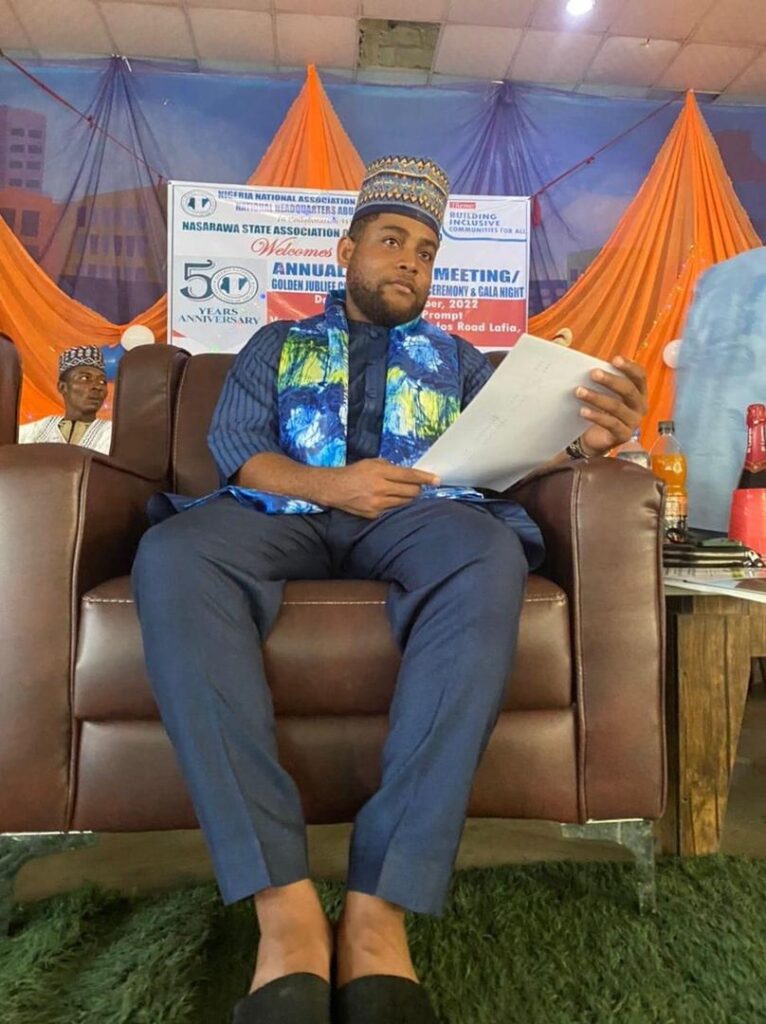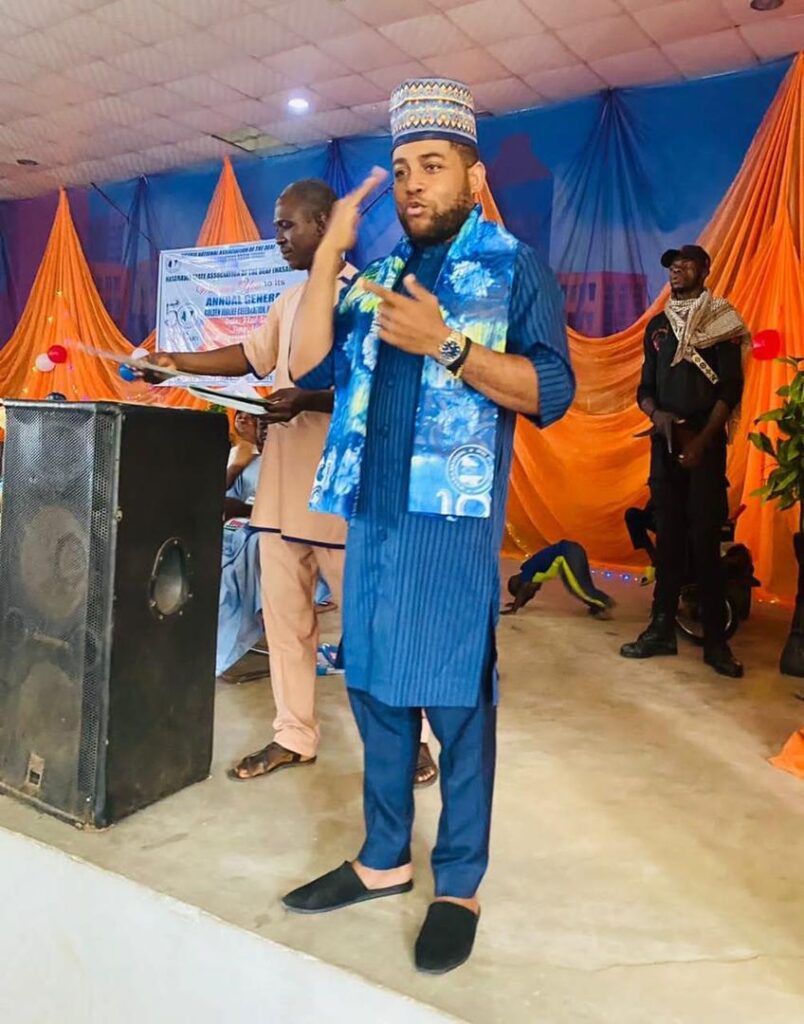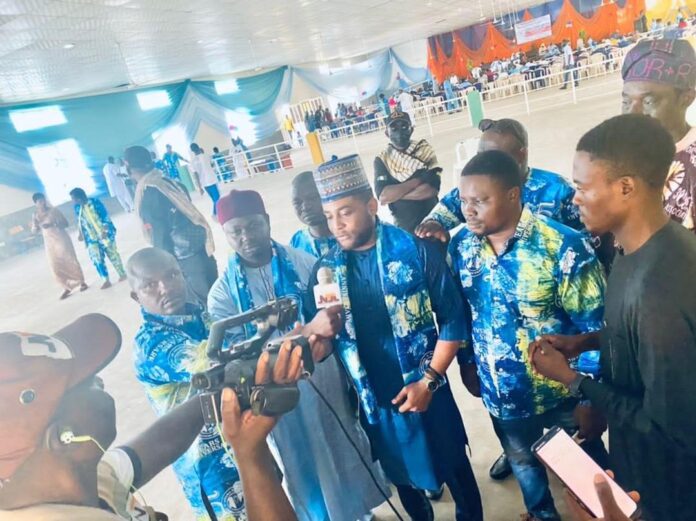A coalition comprised of Nigeria National Association of the Deaf (NNAD), Association of Sign Language Interpreters In Nigeria (ASLIN) and LionHeart Ability Leaders International Foundation (LALIF) have called on The President and Commander-in-Chief of Nigerian Army Forces, The Presidency, the Federal Executive Council, the Senate, the Honourable Members of the House of Representatives, and the General Public to recognize the Nigerian Sign Language as a second lingua-franca officially and to ensure the all-round inclusion of Nigerians who are Deaf, Hard-of-Hearing and Deaf-blind in Nigeria.
The Coalition which was formed on 12th March 2022 under the National Coalition grant of the Disability Rights Fund (DRF) to make efforts towards official recognition of Nigerian Sign Language. The grant is centered on advocacy towards recognizing Nigerian Sign Language as an official language in Nigeria.


In a press statement issued on September, 2022 by the group to mark International Day for Sign Language, they stated that the recognition of the Nigerian Sign Language will benefit the Deaf community and country at large.
“In line with the United Nation’s Convention of Persons with Disabilities as an example in Article 9 (Accessibility), Article 19 (Living independently and being included in the community), and Article 21 (Freedom of expression and opinion, and access to information). Also, in line with the Sustainable Development Goals, GOAL 4 (Quality Education) and GOAL 10 (Reduced Inequality), the country will be recognized and contribute to the achievement of the Sustainable Development Goals, whose slogan highly emphasizes “Leaving No one behind. “
“There are lots of benefits. It will also clear some misunderstandings of assuming we are using American Sign Language (ASL) in Nigeria. Over 9 million Deaf/Hard-of-Hearing/Deaf-Blind persons in Nigeria across the 36 states and the Federal Capital Territory of Nigeria Federation will benefit from this; all stakeholders and the entire Nigeria population will benefit from the recognition, advancement, and development of the Nigerian Sign Language in Nigeria. How Nigeria is commencing the full implementation of the Disability Act in Nigeria, harmonization, and recognition of Nigerian Sign Language in Nigeria will position the Deaf Community to exploit the inherent provisions of the Disability Act legally”.
They informed that The Nigerian Sign Language impacts everyday life of a Deaf/Hard-of-Hearing/Deaf-Blind person.
“In the health sector, accessible communication and information are crucial factors in combating COVID19, touching persons with disabilities, particularly the Deaf/Deaf-Blind community”.
Emphasizing on the importance of Sign Language Interpreters and Captioning in Media, they cited that the United Nations (UN) which describes Sign Language as a full-fledged natural language structurally distinct from spoken languages and The Convention on the Rights of Persons with Disabilities (CRPD) which recognizes and promotes the use of Sign Language. The Convention clarifies that they are of equal status to spoken languages, facilitates the learning of Sign Language, and promotes the linguistic identity of Deaf people.
The Coalition also said : “There is a need for relevant stakeholders, government, parents of the Deaf, and outlets to implement access to information to Deaf persons through the Nigerian Sign Language and to push it to full implementation through various advocacy machines. Hence, we appreciate organizations that have shown advocacy interests in Nigerian Sign Language on TV stations as part of their activities, such as The Albino Foundation (TAF), Disability Right Funds (DRF), the Centre for Citizens with Disabilities (CCD), and the Association of Sign language interpreters, among others”.
They stated that the Deaf Community in Nigeria needs Sign Language Interpretations and captions on both government and private television stations and government functions/events for Deaf persons thoroughly, including Deaf people.
“We, however, appreciate the Nigerian Television Authority for their efforts, but there are need to extend the Interpreting screen to cover all programs and not only the NTA News @7pm”.
They expressed worry and dismay over the non-inclusion of the Deaf Association and Association of Sign Language Interpreters of Nigeria in the processes of hiring the interpreters, which has brought some unacceptable signs, causing misinformation and incomplete information in the dissemination of news.
They suggested that this be solved with the full recognition of the documented sign language, which we have already done with the support of DRF and the Disability Commission.
“It’s equally important to note that we, the language owner, need to be fully involved in the processes. It is about our language, and we cannot keep quite leaving others to decide things for us—nothing for us without us fully involved”.


